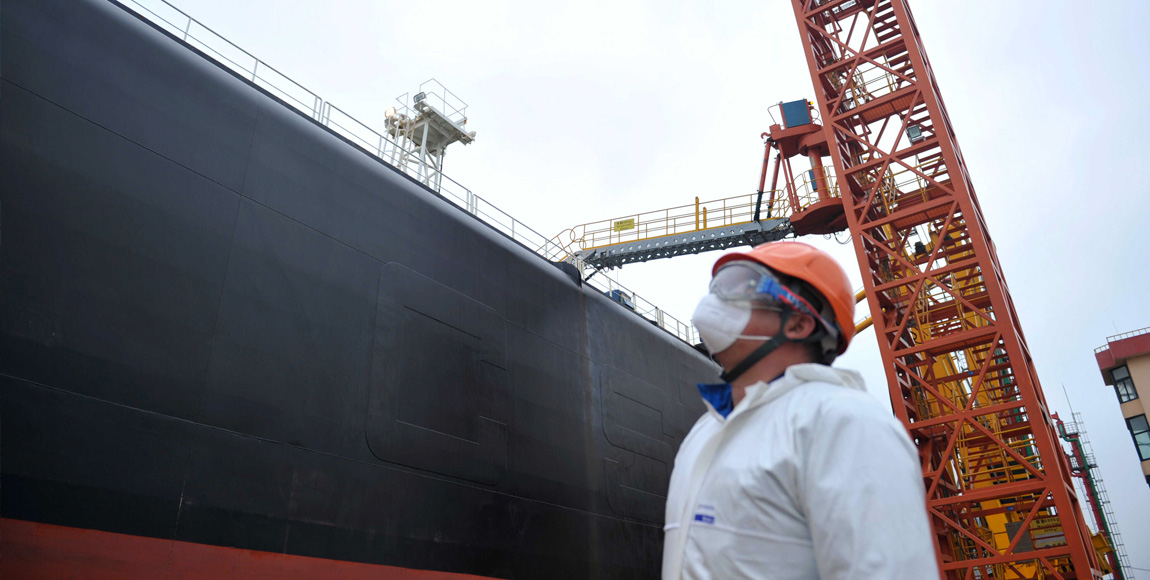Ten-point plan launched to bolster global transport during Covid-19

As countries adopt radical measures to bring the coronavirus pandemic under control, international trade and transport systems are under tremendous stress. Early evidence shows that international trade is collapsing and threatening access to goods and critical supplies.
In response, the United Nations Conference on Trade and Development (UNCTAD) has devised a 10-point action plan to help industries involved in the movement of goods keep free-flowing trade afloat during the Covid-19 crisis and its aftermath.
“Trade facilitation is about keeping goods moving, so we must do our utmost to ensure the crisis doesn’t slow the movement of critical supplies,” explains Shamika Sirimanne, UNCTAD’s director of technology and logistics. “Facilitating trade and the transport of goods has become more important than ever to avoid logistical obstacles that lead to shortages of necessary supplies.”
The policy brief presents concrete measures to facilitate transport and trade while protecting people from contracting Covid-19.
It echoes an earlier call by UNCTAD Secretary-General Mukhisa Kituyi to keep ships moving, ports open and cross-border trade flowing during this crisis period.
Ten steps to keep trade moving
UNCTAD proposes 10 policy measures to cover maritime transport, customs operations, transit, transparency and legal issues, as well as technology to enhance paperless trade processes. The plan calls for policies that:
- Ensure uninterrupted shipping;
- Keep ports open;
- Protect international trade of critical goods and speed up customs clearance and trade facilitation;
- Facilitate cross-border transport;
- Ensure the right of transit;
- Safeguard transparency and up-to-date information;
- Promote paperless systems;
- Address early-on legal implications for commercial parties;
- Protect shippers and transport service providers alike; and
- Prioritise technical assistance.
The policy brief calls on governments to ensure health measures are implemented in ports and border crossings in ways that minimise interference with international traffic and trade.
It also emphasises the need for people involved in the movement of trucks, ships and aeroplanes to be given the status of critical personnel.
Transport and trade facilitation in developing countries
Developing countries face particularly challenging conditions. They need enhanced support from the development community, as well as cooperation to keep trade moving.
“Even before Covid-19 struck, many developing countries were already confronted with the challenge of having limited resources to make the necessary investments in transport infrastructure and services, and to undertake trade facilitation reforms,” says Sirimanne.
These measures require further investment in human, institutional and technological capacities, and should thus be given priority by development partners.
UNCTAD already works with developing countries to support their trade and transport facilitation efforts. A key example of such initiatives is the ASYCUDA programme, which offers a technology solution for customs automation and a single window for trade.
UNCTAD also trains officials to build port management capacity, works with national trade facilitation committees and provides technical assistance to improve transport transit in developing countries.
The committees enhance inter-agency coordination to facilitate trade flows, especially in emergency situations such as the coronavirus pandemic.
Soon after lockdown measures commenced throughout the world, UNCTAD issued a set of guidelines and recommendations for customs agencies and port operators to safeguard trade and transport while fighting Covid-19.
“The action plan released today, with its 10 measures, is yet another concrete step in support of safeguarding trade and development in times of pandemic,” Sirimanne concludes.
FURTHER READING
Download:
Published by
Focus on Transport
focusmagsa




